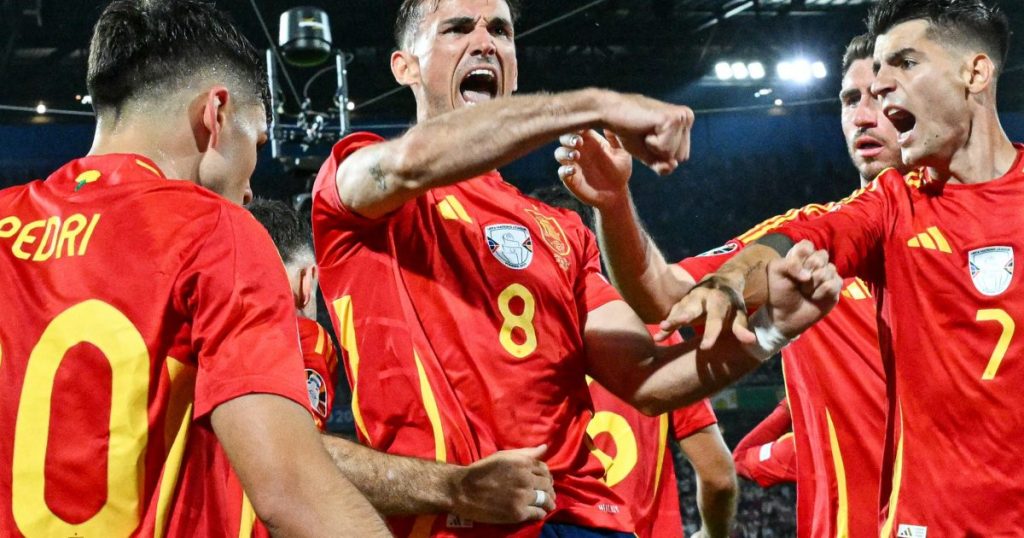Spain’s Resurgence to the Top: A Decade-Long Journey Back to the Summit
The global football landscape has witnessed a significant shift in power dynamics as Spain reclaims its position atop the FIFA World Rankings. This momentous achievement, announced via FIFA’s official X handle on Thursday, marks Spain’s return to the summit after a decade-long hiatus, last holding the top spot in 2014. Their ascent comes on the back of an impressive run in the 2026 FIFA World Cup qualifiers, showcasing a revitalized squad and a renewed sense of national pride. Spain’s journey back to the pinnacle of international football signifies a blend of tactical prowess, individual brilliance, and a collective spirit that has propelled them past formidable opponents. Their recent performances have not only earned them the top ranking but also instilled a sense of optimism and anticipation for future tournaments.
Argentina’s Descent and France’s Rise: A Reshuffling of the Global Elite
While Spain celebrates its return to prominence, Argentina, the previous leader since April 2023, has experienced a dip in form, falling to third place in the latest rankings. This shift reflects the ever-evolving nature of international football, where consistent performance and adaptability are paramount to maintaining a top position. France, on the other hand, has capitalized on Argentina’s stumble, ascending to the second spot. Their consistent performances and depth of talent have solidified their position as a perennial contender on the world stage. The fluctuating fortunes of these footballing giants highlight the intense competition at the top and the fine margins that separate the best from the rest.
Europe’s Shifting Sands: Portugal, Croatia, Italy, Germany, and Slovakia’s Respective Trajectories
The updated rankings also reveal notable movements within the European contingent. Portugal, Croatia, and Italy have experienced upward mobility, now occupying the fifth, ninth, and tenth positions, respectively. These incremental gains reflect their steady progress and growing influence in the global football hierarchy. However, Germany experienced a significant setback, plummeting to 12th place after a shock defeat to Slovakia in their qualifying matches. This marks their first time outside the top 10 since October 2024, highlighting the vulnerability of even the most established footballing nations. Conversely, Slovakia emerged as the biggest climbers, surging 10 places to 42nd after consecutive qualifying victories, including their upset triumph against Germany. This remarkable ascent underscores the unpredictability of international football and the potential for any team to disrupt the established order.
Brazil’s Decline and Morocco’s Consistency: South America and Africa’s Representatives
Brazil, a traditional powerhouse in South American football, has experienced a decline, slipping to sixth place following a period of inconsistent performances. This drop reflects the challenges faced by even the most storied teams in maintaining their dominance in a constantly evolving footballing landscape. Meanwhile, Morocco continues to impress, remaining just outside the top 10 after an exceptional run of eight wins in their last nine matches. Their consistent performances and growing stature on the global stage have made them a force to be reckoned with, representing the rise of African football and its increasing competitiveness.
Global Movers and Shakers: Notable Ascents and the Impact of the 2026 World Cup
Beyond the established powerhouses, several other nations have made significant strides in the latest rankings. The Gambia, Madagascar, Paraguay, Uganda, Libya, Suriname, and the Faroe Islands have all improved their positions by at least five places, demonstrating the growing competitiveness and depth of talent across the globe. Canada, one of the co-hosts of the 2026 World Cup, has also climbed two spots to 26th, reflecting the positive impact of hosting such a prestigious tournament on a nation’s footballing development. Kosovo achieved a historic milestone by reaching 91st place, highlighting the progress made by emerging footballing nations.
The Shifting Landscape of World Football: Implications for Future Competitions
These updated rankings provide a snapshot of the current state of international football, highlighting the shifting dynamics and emerging trends. Spain’s return to the top, Argentina’s decline, France’s consistency, and the fluctuating fortunes of other nations offer a glimpse into the competitive landscape that awaits us in upcoming qualifiers and tournaments. The rankings also underscore the importance of adaptability, consistency, and the ability to perform under pressure in the ever-evolving world of international football. As nations continue their preparations for future competitions, these rankings serve as a benchmark for progress and a reminder of the constant pursuit of excellence that defines the beautiful game.


